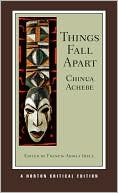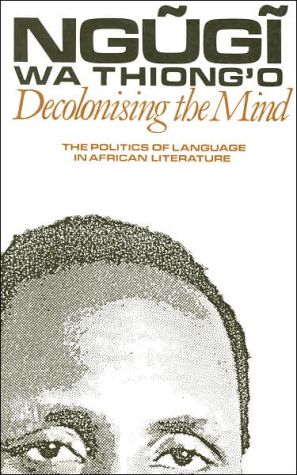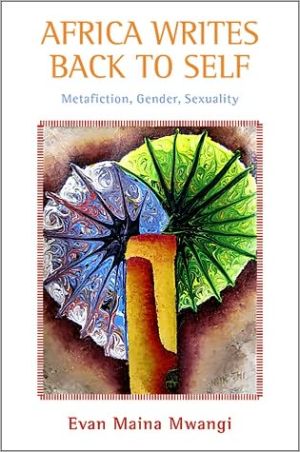Complicities: The Intellectual and Apartheid
Complicities explores the complicated—even contradictory—position of the intellectual who takes a stand against political policies and ideologies. Mark Sanders argues that intellectuals cannot avoid some degree of complicity in what they oppose and that responsibility can only be achieved with their acknowledgment of this complicity. He examines the role of South African intellectuals by looking at the work of a number of key figures—both supporters and opponents of apartheid.\ Sanders gives...
Search in google:
Complicities explores the complicated-even contradictory-position of the intellectual who takes a stand against political policies and ideologies. Mark Sanders argues that intellectuals cannot avoid some degree of complicity in what they oppose, and that responsibility can only be achieved with their acknowledgment of this complicity. He examines the role of South African apartheid-era intellectuals by looking at the work of a number of key figures-both supporters and opponents-in English, Afrikaans, and Xhosa. Drawing on theorists including Derrida, Sartre, and Fanon, and paying particular attention to the linguistic intricacy of the literary and political texts considered, Sanders shows how complicity emerges as a problem for intellectuals across the ideological and social spectrum. He gives detailed analyses of widely divergent figures: Afrikaner nationalist poet N. P. van Wyk Louw, Drum writer Bloke Modisane, Xhosa novelist A. C. Jordan, Afrikaner dissident Breyten Breytenbach, and Black Consciousness leader Steve Biko. Opening with a discussion of colonial intellectuals Olive Schreiner and Sol T. Plaatje, and concluding with a reading of post-apartheid feminist critiques of the Truth and Reconciliation Commission, he reveals how sexual difference joins with race to further complicate issues of collusion. Complicities sheds new light on the history and literature of twentieth-century South Africa as it weighs into debates about the role of the intellectual in public life. About the Author Mark Sanders is Assistant Professor of English and American Literature at Brandeis University.
complicities\ the intellectual and apartheid \ \ By MARK SANDERS \ DUKE UNIVERSITY PRESS\ \ Copyright © 2002 Duke University Press\ All right reserved.\ ISBN: 0822329980 \ \ \ \ Chapter One\ two colonial precursors \ Apartheid forms and deforms the intellectual as a figure of responsibility-in-complicity. In order to overcome the apartness of apartheid, the intellectual opposing or differing from apartheid affirms a larger foldedness in human-being. He or she negotiates a complicity in whatever blocks the realization of that foldedness. In the name of this generalized complicity and responsibility, we witness a strategy of avoidance of certain determinate complicities in the narrow sense-or, as Derrida formulates it in Of Spirit, a choice between them.\ Throughout its life span apartheid generated a common ensemble of complicities. These ranged from the support of specific policies and participation in certain institutions, to mental colonization. From each intellectual there emerges a version of generalized complicity related to the nature and extent of his or her involvement in that ensemble. Although encompassing a range of complicities, many of which it shared with other dispensations, apartheid attained a certain unity in the eyes of its opponents and dissidents. That is why it is accurate to treat it and its project of apartness, not as unique, but as exemplary. This allows one to begin with intellectual history but also to exceed it-to write a history of the intellectual as figure of responsibility-in-complicity, a figure between complicity and complicities.\ When we leave the intellectual history of apartheid to trace its margins, its beginnings, and its legacies and no longer find the characteristic ensemble of complicities in place or find it shading into other formations, we witness a displacement of exemplarity. It is our chance to take up strands of other intellectual histories, other genealogies, and to ask to what extent they too yield dynamics of responsibility-in-complicity. When we read figures from before the apartheid era, we find a less-restricted set of complicities and means for their negotiation. These figures may be thought of as precursors, not simply in the sense of being earlier figures in a chronology, but as having a particular significance by virtue of what succeeds them. This is the picture presented by Jorge Luis Borges in his essay, "Kafka and His Precursors." According to Borges, Kafka's precursors exist because Kafka existed; we read other writers as Kafka's precursors because we have read Kafka. In the same way, once apartheid is identified as the predicament par excellence for the intellectual as a figure of responsibility-in-complicity, other earlier predicaments become precursors to that of the intellectual and apartheid. This is not to claim that the specific historical circumstances faced by these figures are themselves precursory to those of apartheid. My main concern is not with apartheid's precursors but with precursors to the intellectual-and-apartheid considered as an ethico-political predicament.\ With Zola having been the major precursor in my introduction, I now turn to the specificities of South Africa. I argue that the responsibility engaged by earlier figures is structurally similar to that engaged by the later ones, and it becomes discernible as such by virtue of the latter. This does not mean that all of the earlier figures resemble each other or find themselves in identical historical situations. As Borges writes, although "the heterogeneous pieces I have enumerated resemble Kafka ... not all of them resemble each other. This second fact is the more significant" (236).\ Resembling in certain traits what comes later yet differing from one another, the precursors partake of a more capacious and more fluid agenda. Some of the complicities they negotiate strongly persist into the apartheid era. Some do not. Others emerge again to a significant degree only in its wake. That is what we find with Olive Schreiner and Solomon Tshekisho Plaatje. Although elements unite them-typically those anticipating opposition to apartheid-their concerns can also be heterogeneous. These distinct concerns render their work and careers exemplary, not just for the responsibility-in-complicity that apartheid provokes, but for that which comes afterward, when once-separate traits come to be joined: in Schreiner the figure of women, the embodiedness of intellect, and the social inscription of the body; in Plaatje advocacy, interpreting, and the problem of "ventriloquism."\ Rather than pressing these two figures into the same frame-reducing one to the other, and their varied concerns to an occupation with the colonial makings of race apartheid-I maintain their heterogeneity, even as I note profound parallels, as a way of marking the limit of this work insofar as it is determined by apartheid. A consideration of other major figures of the period such as Smuts or Gandhi may have reinforced this limit. Plaatje and Schreiner each entertain a sense of a larger human foldedness as a way of avoiding complicity in the deepening social fissuring that would, once the colonial era drew to a close, coalesce into apartheid. It is Schreiner's position in an older genealogy, in what Foucault terms a "history of sexuality," that distinguishes her version of responsibility from Plaatje's. It is perhaps the passing of the apartheid era and its racializing of difference that enables us to read each writer for the conceptions of complicity in the general sense informing their respective positions. What is it in the name of that these writers strive to avoid complicity in the narrow sense? It is essential that we know this. It is not sufficient merely to make a checklist of their positions on a restricted set of political issues. Although it is needful to know what sides they took and to expose any contradictory commitments, merely to do so is, in the final analysis, to pursue an anachronistic scholarly politics of strategic alliance insufficient for anything but a one-sided understanding of the intellectual as a figure of responsibility. They set responsibility-in-complicity to work in singular ways and they choose between determinate complicities. The choices they have, like those they make, are quite often different.\ Despite their heterogeneity, each of the precursors imagines entry into, and participation in, intellectual life as an encounter in which distinctness and division are masked or suspended. Overcoming apartness, their respective literary strategies indicate generalizable ways of understanding the unstable articulation of complicities that goes to make a woman or a man an intellectual. When complicity emerges as a problem with entry into intellectual life and access itself becomes a question, it is necessary to adjust the trajectory (more or less a Marxist interpretation of Zola's stand in the Dreyfus case) from accredited "technician of practical knowledge" to "intellectual" as set out by Sartre ("Plea" 232, 244), and subsequently elaborated by Bourdieu in terms of the conversion of "cultural capital" into an ability to "criticize ... the powers that be" ("Corporatism" 99-101).\ In terms of this trajectory, the legitimating force of an intellectual's public stand derives from his or her accreditation or recognition as a mental worker. Thus, Émile Zola, as a celebrated novelist, could, on behalf of Dreyfus, enjoin a significant public toward his stance of responsibility-in-complicity. But how do we think of the intellectual who lacks accreditation, who does not have the standing of a Zola-or, moving to the South African context, of an N. P. van Wyk Louw or a Nadine Gordimer? Short of simply discarding the trajectory as a model, it is my sense that, although a certain legitimacy may implicitly be what is sought in the endeavor to participate in mainstream intellectual life, the issue of complicity as it emerges for marginal figures does not presuppose that such participation has already been achieved. Of course, to be an intellectual some minimal recognition will surely had to have been attained, but I doubt whether this condition of possibility can be reduced to a narrative element prescribing that the figure in question must, as Sartre and Bourdieu imply, already possess "cultural capital" in order for complicity to become a moral problem. Just as one could argue that with entry into intellectual life the figure entering is marked with at least some minimal recognition or legitimacy, one could say that the issue of complicity emerges in the attempt to gain access to it. Another way of saying this is that the issue of complicity arises with the accession to sociality, at the point of foldedness with the other. It is possible that the intellectual is nothing more than the figure who dramatizes the fact that this accession never realizes the generalized human foldedness that is sought but only generates more or less partisan versions of collaboration, loyalty, or affiliation, which must always be held responsible before (or through) a complicity that, though unrealizable, is conceived as generalizable.\ With the history of the intellectual and apartheid and that history's precursors, opposition mounted in the name of a larger responsibility is variably distributed in ways that have to be taken into account. When, as in Schreiner's early writing and in Plaatje's late work and with Modisane during the apartheid era, it is a question of access, and the figures are more marginally positioned, it can appear that, in tracking their activities, it is simply a matter of showing their accommodations, compromises, and contradictory commitments. It will, I hope, be clear that this cannot be the end goal, for what is at stake is the very accession to intellectual sociality-and perhaps meaningful sociality itself. Bare sociality-human life, in a word-cannot be subject to critical judgment. In the same way, participation alone is no basis for judgment. Rather, it is the relationship between actual instances of participation and the possibility of generalizing or maximizing responsibility, from such determinate complicities that calls for judgment. But judgments in this sphere can hardly ever be unequivocal, as we clearly observe with the precursors, before the ensemble known as apartheid is more or less firmly in place.\ Although the precursors anticipate, in their shared concerns, an opposition to colonial forms of social apartness, they betray a division and singularity in the realm of complicities. In Schreiner's early work there is the question of the access of women to intellectual life. Her resolution, which suggests other genealogies for the intellectual-even another frame for a study of the intellectual and apartness-is later subject to her own tacit censure, and this, in turn, generates fresh complicities. Even in her later work, although actual entry of black African men and women into places of higher learning is registered, the evolutionary philosophy that would rule out participation by Bushmen (or San) remains unquestioned. It is in Plaatje's late work, where he builds on and alters his earlier reflections on the practices of the courtroom interpreter, that we find a more fundamental dispropriation of identity at work, a figuring of generalized complicity and responsibility. This division within Plaatje is an emblem for the division within opposition to apartheid between those with access and those gaining access. Responsibility-in-complicity must be universal. Since the type of complicity depends on one's specific situation, however, it follows that not all complicities from which responsibility arises are to be regarded as equivalent, although all are subject to judgment.\ Olive Schreiner: The Intellectual in the History of Sexuality\ This intel[l]ect is a good thing but it is not every thing.\ -OLIVE SCHREINER, "Journal: Rattel's Hoek"\ When Olive Schreiner's life and fiction are put together, we have a text that inscribes her as a writer in a genealogy of intellectual life older than apartheid and with its own peculiar margins. Although (as in Plaatje and those who follow) there is in Schreiner (1855-1920) a strong pre-occupation with race and an attempt to mobilize race against racism in aid of an anticolonial cause (especially in her later works), the particularity of her life and written corpus, insofar as they touch on the intellectual, reside in an occupation with sexual difference. Her brief reference, in Thoughts on South Africa (written 1890-1901), to the entry of black women into mainstream colonial intellectual life, made in a footnote to a discussion of the relative capacity of Africans to assimilate white "civilization" is inseparable from that investment: "So considerable is the aptitude for abstract study displayed by the Bantu, that there are cases in which even Bantu females, preparing for the matriculation examination of the Cape University, are found not to be inferior to the average male Europeans sharing the same course of study" (127). Although what it identifies as a "considerable ... aptitude for abstract study" in fact translates into no more than a few black women matriculating from the University of the Cape of Good Hope in the 1890s and early 1900s, Schreiner's footnote conveys a sense of how she imagined a set of unspoken entrance requirements. The criterion is the "average male European"; to pass is "not to be inferior" to him. This standard resembles the one governing entry to intellectual life as Schreiner stages it in her earliest published novel, The Story of an African Farm (1883). Although the footnote to Thoughts on South Africa marks the figures racially ("Bantu female"; "male European"), suggesting the outline for a raced rewriting of the episode from her early work, the history of sexuality broached there is not displaced in the later work by a history of race or racial ethnicity. The figures remain female and male, with the male the "average" against whom one measures oneself. The "Bantu female" assumes her place in a little modified version of the intellectual trajectory imagined for the white woman.\ It is in The Story of an African Farm that the complex relationship of sexual and intellectual life comes most strongly to the fore in a nexus of Schreiner's life and fiction. In her unfinished novel From Man to Man (1926), the sphere of mind is a chaotic and isolated zone separated from the work of mothering and almost entirely divorced from sociality; and Woman and Labour (1911) insists on the social function, within a clear division of labor, of women as mother-teachers. By contrast, The Story of an African Farm, when read along with Schreiner's letters and biography, stages the full-scale entry of the female intellectual into an intellectual sociality defined by men. The trouble is that in order to take part in it the female intellectual has, in effect, to cease to be a woman.\ (Continues...)\ \ \ \ \ Excerpted from complicities by MARK SANDERS\ Copyright © 2002 by Duke University Press\ Excerpted by permission. All rights reserved. No part of this excerpt may be reproduced or reprinted without permission in writing from the publisher. \ \
PrefaceIntroduction: Complicity, the Intellectual, Apartheid1Ch. 1Two Colonial Precursors19Ch. 2The Intellecual and Apartheid57Ch. 3Apartheid and the Vernacular93Ch. 4Prison Writing131Ch. 5Black Consciousness159Conclusion: "Don't Forget to Tell Us What Happened to You Yourself..."197Notes213Bibliography243Index265
\ From the Publisher“Complicities is an invaluable inquiry into the social, political, moral, and philosophical functioning of the intellectual, not just in the context of apartheid, but within every society blighted by racism, sexism, or the myriad of other forms of oppression and intolerance which mark our time.”—André Brink\ “Philosophically informed and linguistically sophisticated, Complicities is an important contribution to the intellectual history of modern South Africa.”—J.M. Coetzee\ \ \








